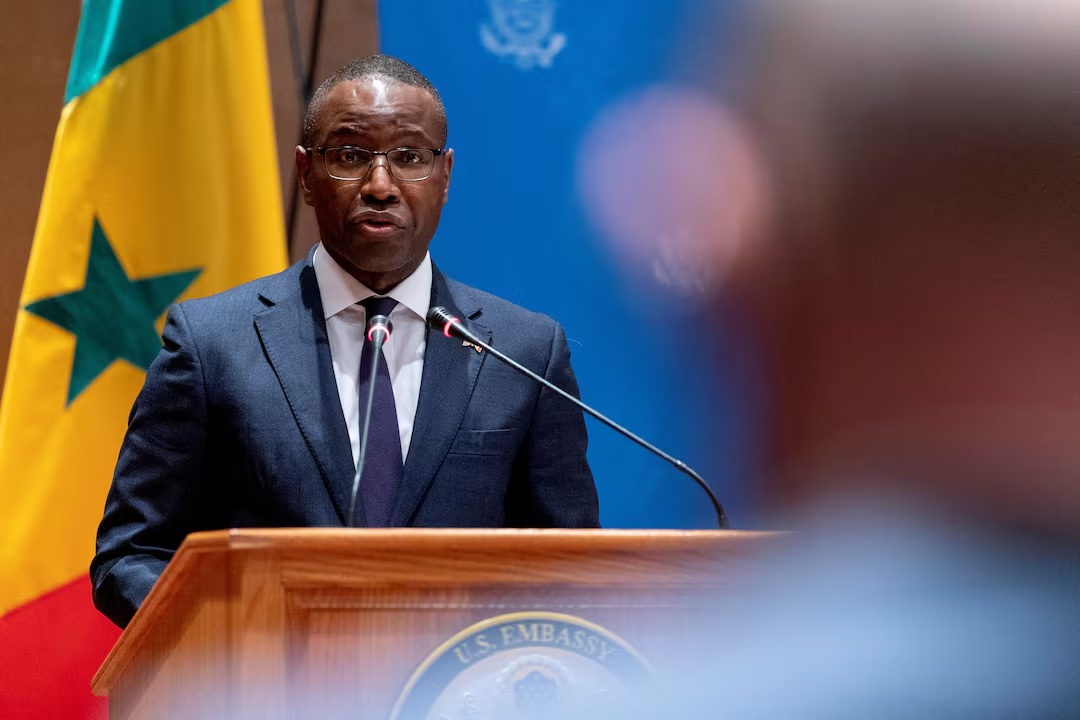
Meet the contenders for the top development bank position in Africa
At the African Development Bank’s annual conference in Abidjan, Ivory Coast, on Thursday, five contenders will compete for the position of president.
The bank’s $318 billion capital is now even more important to Africa’s development due to tectonic changes in global development financing, including declining concessional funding, reductions in aid spending by wealthier nations, and rising borrowing rates.
What do they wish to do, and who are they?
BAJABULILE SWAZI TSHABALALA
Tshabalala, a 30-year veteran banker, served as AfDB’s senior vice president until October.
If elected, the South African, the only female candidate, intends to revolutionize the bank.
“The internal structure of the institution … doesn’t facilitate the right sort of sustained focus to be able to really deliver effectively on things like infrastructure,” she stated. “We really should consolidate that.”
According to Tshabalala, if infrastructure is correctly implemented, Africa will be able to access its riches, including trade, money, and minerals. Building on the AfDB’s venture into hybrid capital, she hopes to develop novel financial products.
HOTT AMADOU
The former economy minister of Senegal has worked in banking for decades, from Lagos to London.
He would mobilize resources and create projects to retain private funds on the continent, concentrating the AfDB on African financial self-reliance.
“Revenue mobilization is number one,” he stated.
In order to improve credit ratings, reduce borrowing costs, and raise funds for urgent needs like infrastructure and power, Hott stated that revenue collection must increase. The average tax to GDP ratio in Africa is 16%, compared to the OECD average of 34%.
“The money is out there,” he said, adding that private sector mobilization had been hampered by a lack of pre-made, well-structured initiatives that reduced risks and produced returns.
MAIMBO, SAMUEL MUNZELE
The Zambian, who has thirty years of experience in development finance, is a World Bank vice president on leave during his campaign.
In order to allow Africa’s 54 countries to trade and fund one another, he would start behind-the-scenes efforts as president to compile data, repair the financial infrastructure, and simplify laws.
“Now more than ever before, we’ve got to get trade working on the continent,” he stated. “If we’re only trading 15% of our products amongst each other, our products are either rotting or they’re being undervalued.”
The Common Market for Eastern and Southern Africa and the Southern African Development Community support Maimbo’s goal of a continent-wide strategy for infrastructure, revenue collection, and debt sustainability.
SIDDI SHOULD TAH
For the past ten years, the Arab Bank for Economic Development in Africa has been led by the former finance minister and presidential adviser of Mauritania.
“The AfDB must break free from legacy constraints and position itself as the driver of Africa’s economic sovereignty,” Tah stated.
His four main goals are to mobilize a wider range of capital, reform financial systems, formalize the “informal sector,” which employs 83% of Africans, to harness demographics, and construct climate-resilient infrastructure.
According to him, the AfDB can convert every $1 raised into $10 of productive capital by collaborating with the private sector, other multilateral organizations, and regional development banks.
MAHAMAT TOLLI ABBAS
Tolli has served in high-level financial roles in Central Africa, such as president of the Development Bank of Central African States, regional central bank governor, and finance minister of Chad.
From agriculture to finance, he emphasizes self-sufficiency and seeks to improve governance in order to reduce wasteful, opaque expenditure that has left nations in debt without progress.
According to him, fiscal evasion and resource mismanagement cause a lot of financial outflows from Africa, and “we need to better manage.”
Tolli sees a “major overhaul” of the AfDB’s operational model as necessary to make it operate, which would involve digitizing finance channels, enhancing public-private partnerships, and pooling risk.
Tolli claimed that his own past, which involved caring for goats as a child after escaping a civil war at the age of six, reflected Africa’s path and provided him with a special perspective on how to uplift everyone on the continent.
All Categories
Recent Posts
Tags
+13162306000
zoneyetu@yahoo.com



